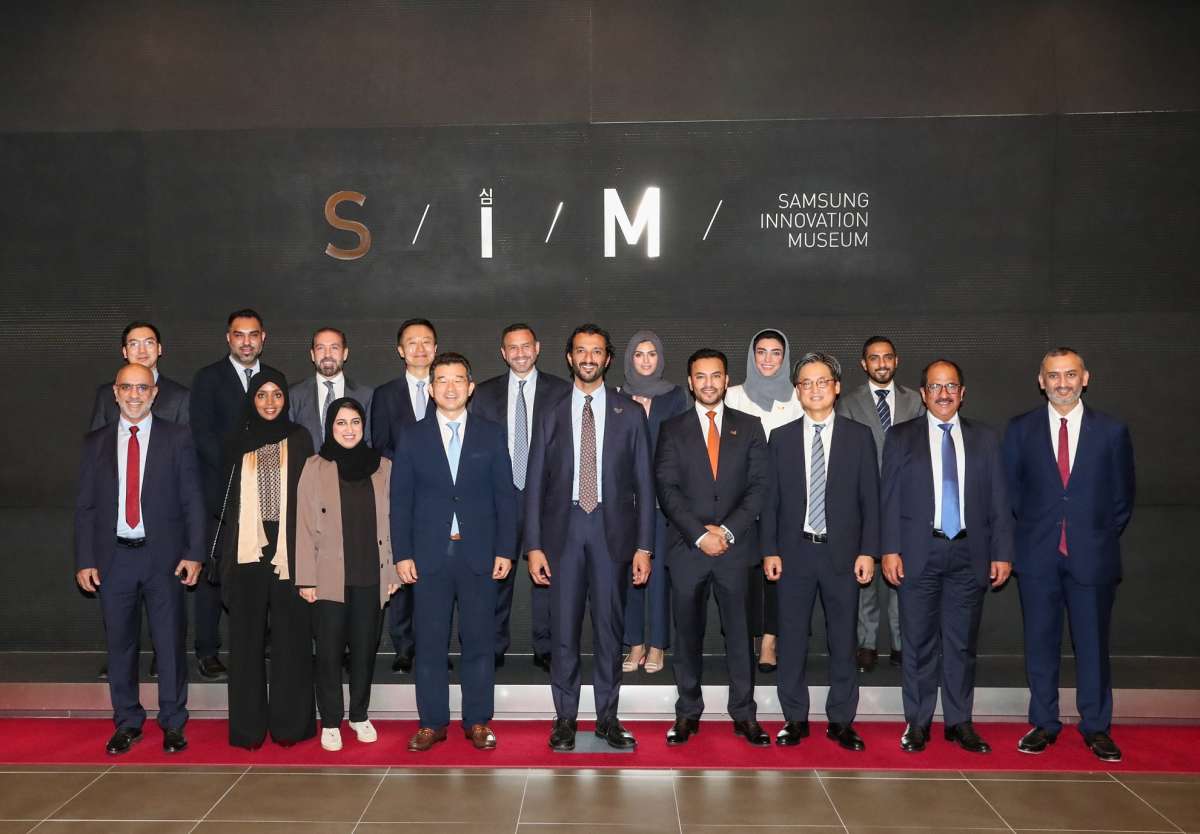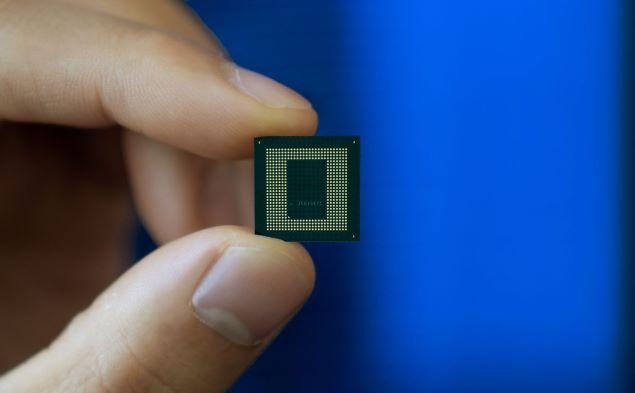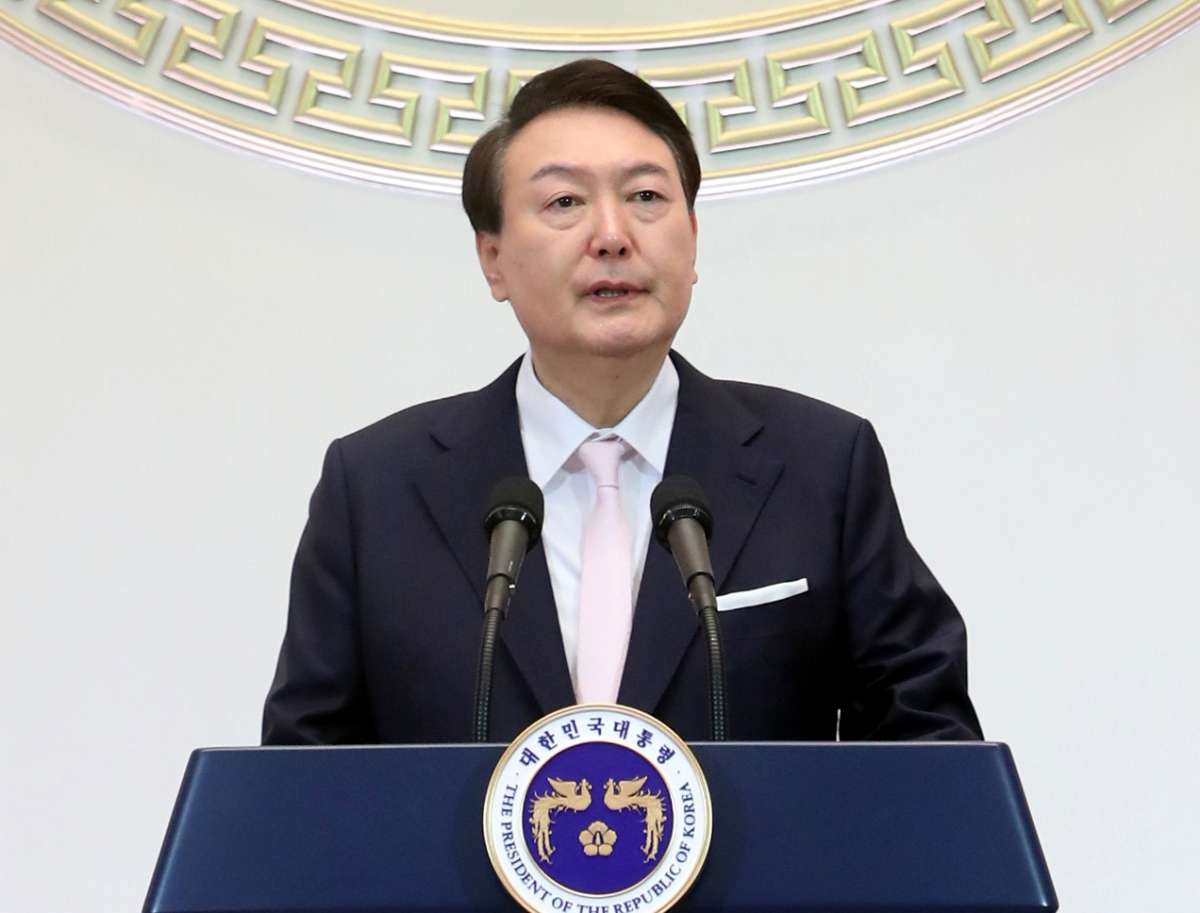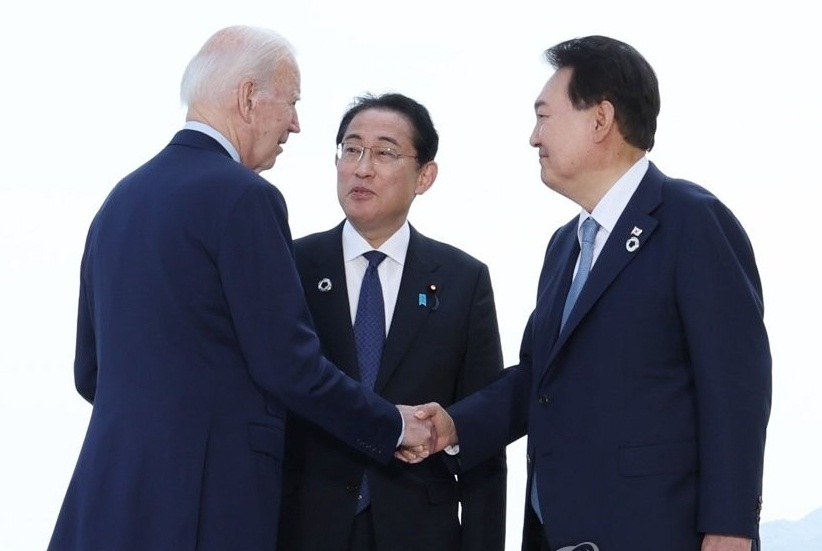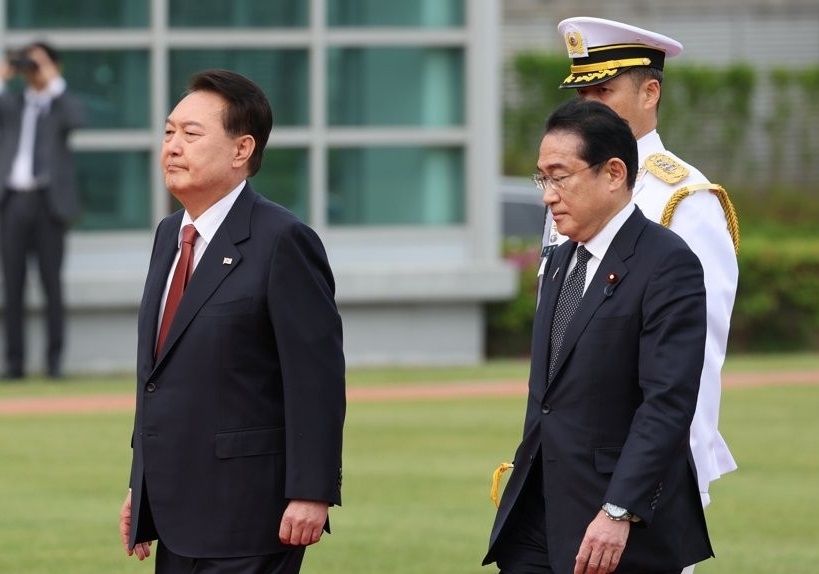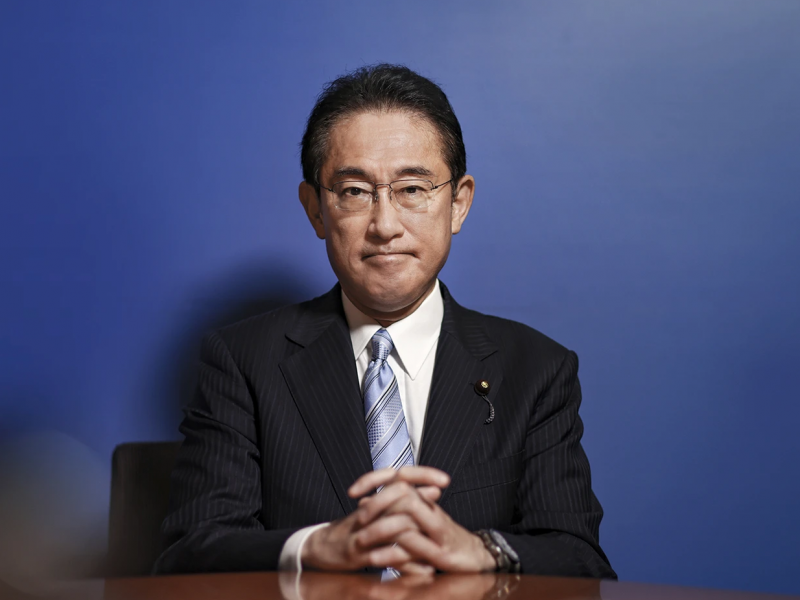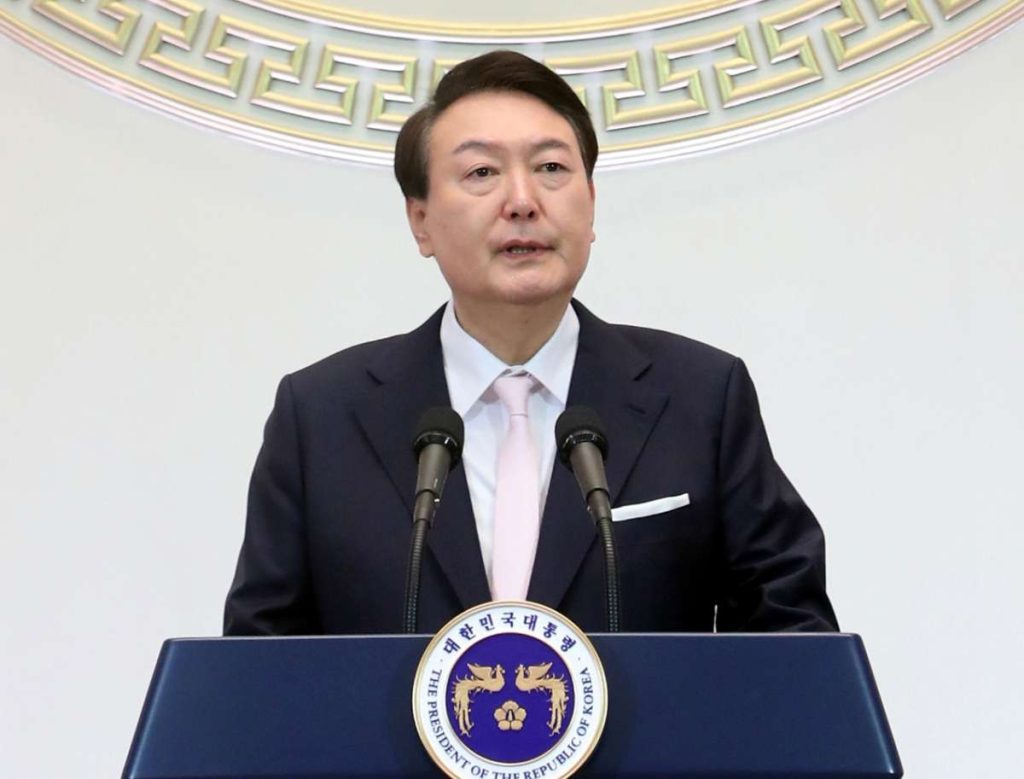The UAE delegation was in Seoul to participate in the eighth UAE-Korea Joint Economic Committee…reports Asian Lite News
Abdullah bin Touq Al Marri, Minister of Economy, led the UAE delegation on a visit to Samsung’s headquarters in the Republic of Korea to learn about the company’s future expansion and investment plans and strengthen its partnership with the UAE market. The Minister was received by Oh-Hyun Kwon, CEO and Vice President of Samsung Electronics.
The UAE delegation was in Seoul to participate in the eighth UAE-Korea Joint Economic Committee aimed at strengthening the existing economic and trade ties and exploring new opportunities for cooperation and investment partnerships with the Korean private sector.
Bin Touq emphasised that thanks to the directives of its wise leadership and the competitiveness of its legislative and economic environment, the UAE has succeeded in establishing a stable and attractive investment climate for the technology and the new economy sectors. The country has today become a major trading and investment hub for several leading global companies, which has further contributed to the growth of its FDI balance, attracting more foreign investors from around the world.
Furthermore, Bin Touq highlighted the measures adopted by the UAE to drive investments and expansion in new economic sectors, acknowledging its importance in building the future economy and achieving sustainable economic and social development. A wide array of future-oriented economic legislation and policies were introduced to this end, most notably the issuance of new laws on cooperatives, family enterprises, business transactions and trade records, in addition to the launch of the Comprehensive Economic Partnerships (CEPA) programme to strengthen its partnership with strategic global markets.
Bin Touq said, “Korean FDI in the UAE continues to grow, totalling AED 8.1 billion (US$2.2 billion) by the beginning of 2021 with a 73 percent growth compared to that of early 2013. Today, the Republic of Korea is one of the top 20 foreign investors in the UAE. Their investments span several economic and trade sectors including insurance, mining, financial services, retail, real estate, transport, energy and technology.”
He added, “Over the past 12 months, 200 new Korean companies have entered the country’s markets, taking the total number of economic licenses obtained by Korean companies operating in the UAE to nearly 1,100, up 22 percent compared to 900 in June 2022.”
During the visit, the UAE Minister was briefed on the progress of work and production at the Samsung headquarters and the modern digital technologies used in the production of electronic chips, screens and smartphones.

